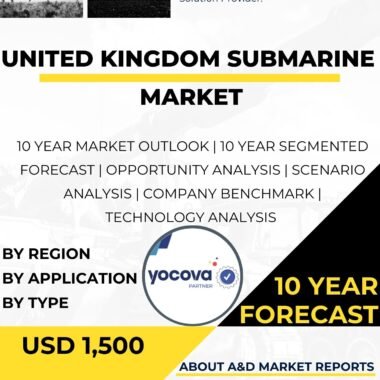Description
Brazil’s Prosub Program and Indigenous Submarine Development
Brazil submarine market is advanced by the Submarine Development Program (Prosub), a strategic initiative to enhance naval capabilities through conventional and nuclear-powered submarines. This program strengthens maritime security, drives technological self-reliance, and fosters defense industry growth through international collaboration and local innovation.
Prosub’s Scorpène-Class and Nuclear Submarine Efforts
Prosub, launched with Naval Group, includes four Scorpène-class diesel-electric submarines—Riachuelo, Humaitá, Tonelero, and Angostura—and the nuclear-powered Álvaro Alberto. Built at Itaguaí Construções Navais, these submarines feature advanced sonar, SUBTICS combat systems, and F21 torpedoes, enabling anti-submarine warfare, intelligence gathering, and maritime patrol. The nuclear submarine, with a 48-MW reactor, offers extended stealth and range for strategic deterrence in Brazil’s vast maritime territory.
Technology Transfer and Industrial Growth
Prosub’s contracts facilitate technology transfer, training Brazilian engineers in submarine design and construction. Itaguaí’s shipyard achieves significant local content, engaging companies like Nuclep for reactor components and SIATT for weapon systems. This reduces foreign dependency, creates high-skilled jobs, and aligns with Brazil’s goal to bolster its defense industrial base.
Strategic Applications and Maritime Security
The submarines enhance Brazil’s “Blue Amazon” defense, protecting offshore oil assets and countering threats like piracy and illegal fishing. Their stealth capabilities support covert reconnaissance and anti-surface warfare, while participation in multinational exercises ensures interoperability with regional allies.
Regional Influence and Export Potential
Prosub positions Brazil as a potential submarine technology exporter, with interest from Latin American partners. The program contributes to the global submarine market, enhancing Brazil’s geopolitical influence and fostering maritime stability through shared expertise.
In summary, Prosub drives Brazil’s submarine market by delivering advanced naval platforms and fostering self-reliance. By balancing indigenous innovation with international partnerships, Brazil strengthens its role as a leader in Latin American naval defense.




